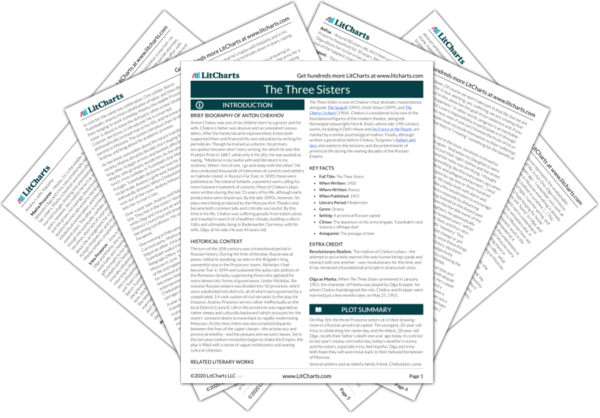Vershinin reflects on the strangeness of the night—the fright of the fire reminds him of long-ago pillaging and burning, and makes him wonder how “clumsy and burdensome” modern life will appear to people in two or three hundred years. He apologizes for talking philosophy, but he’s in the mood for it. He starts singing an aria about love from Tchaikovsky’s opera
Eugene Onegin, and
Masha sings along.
